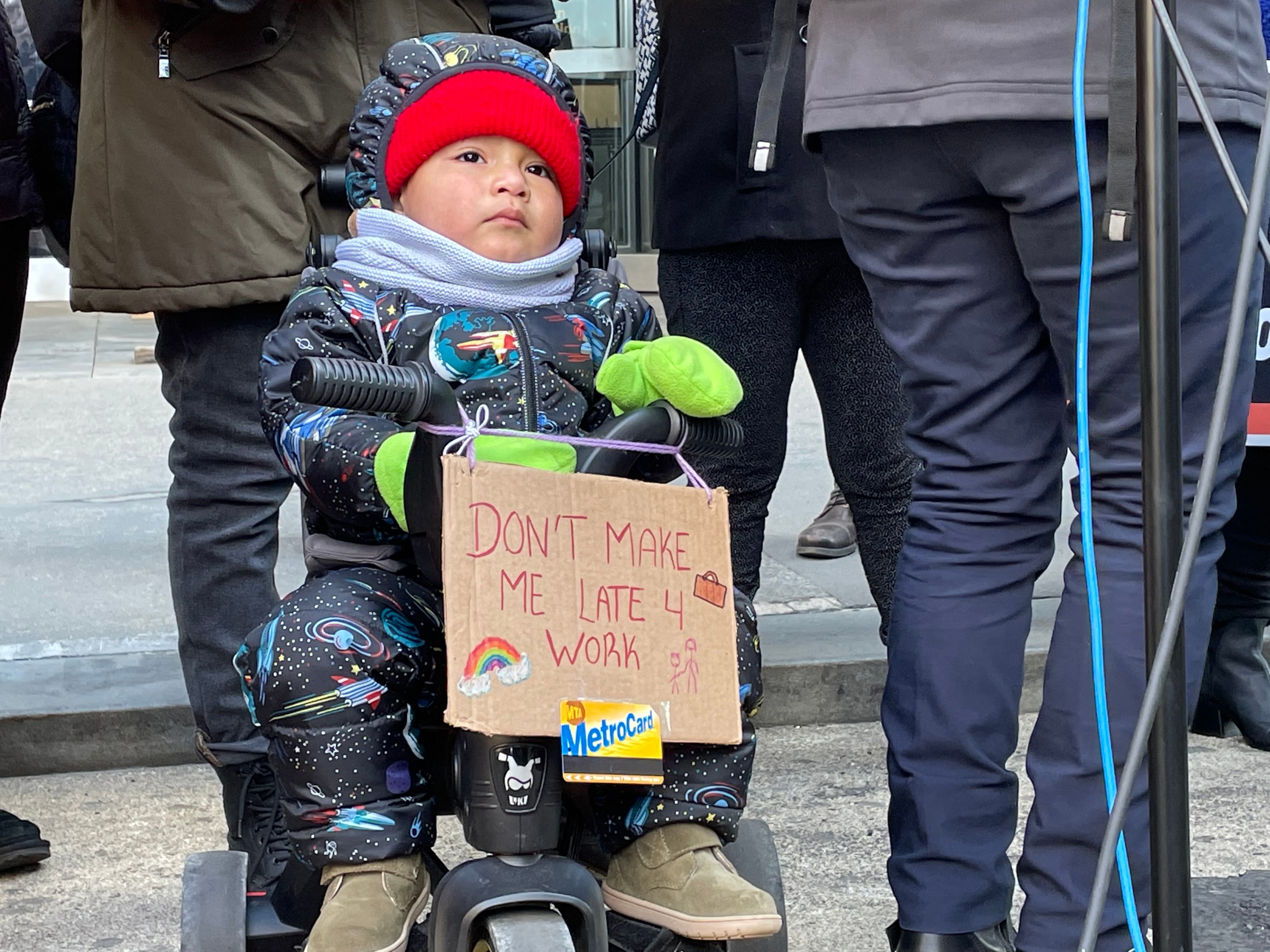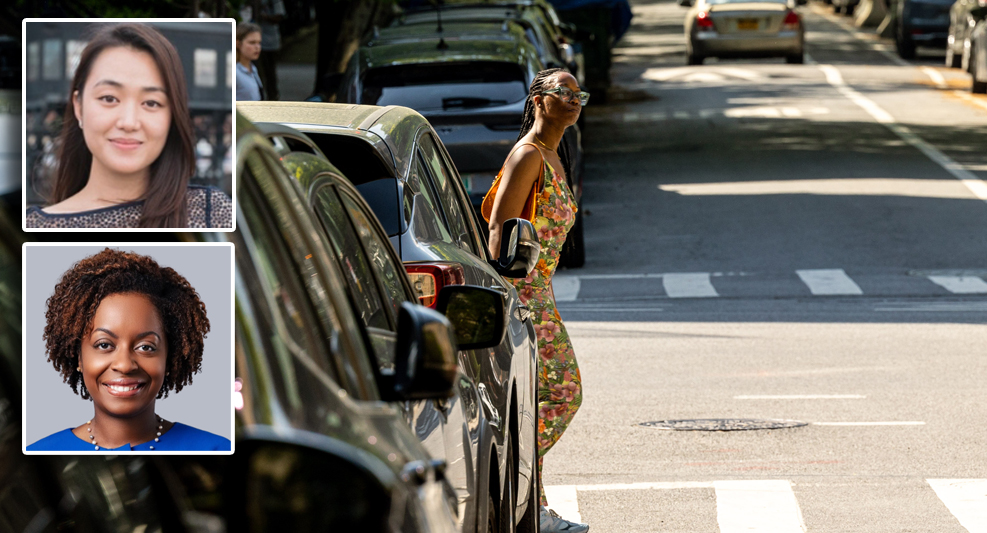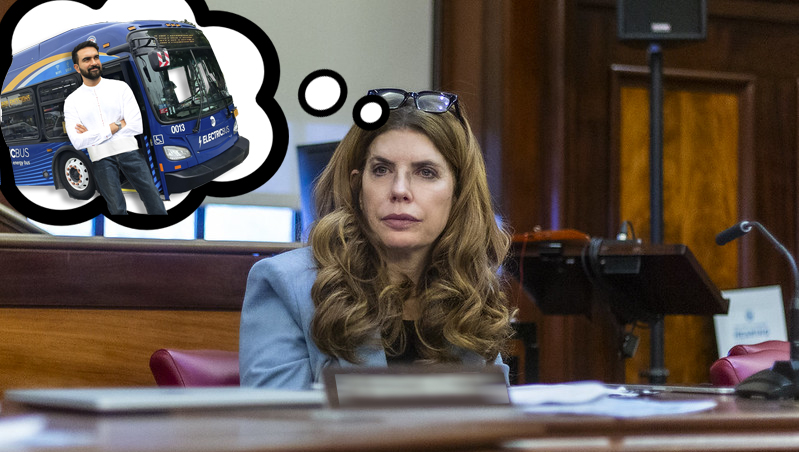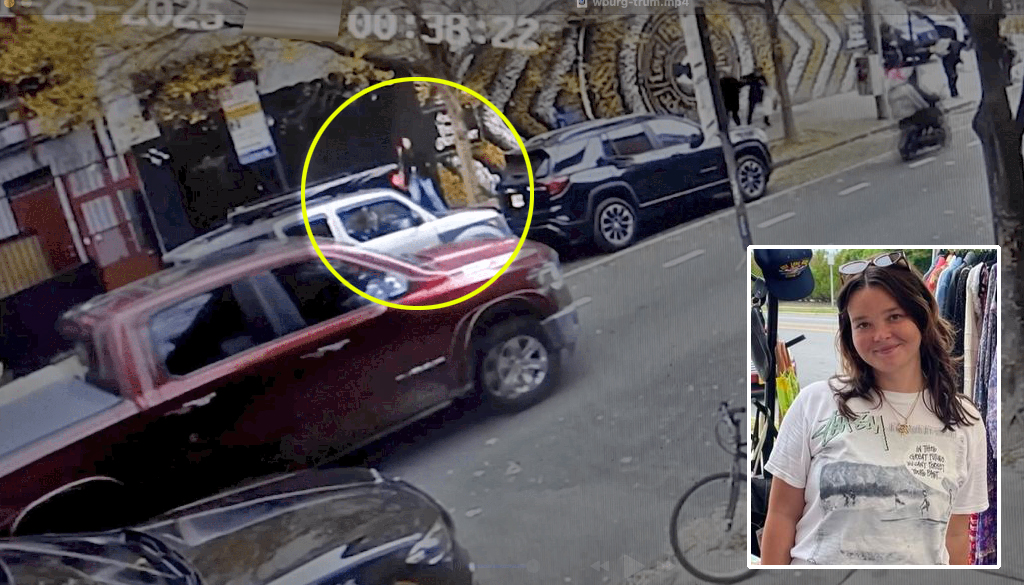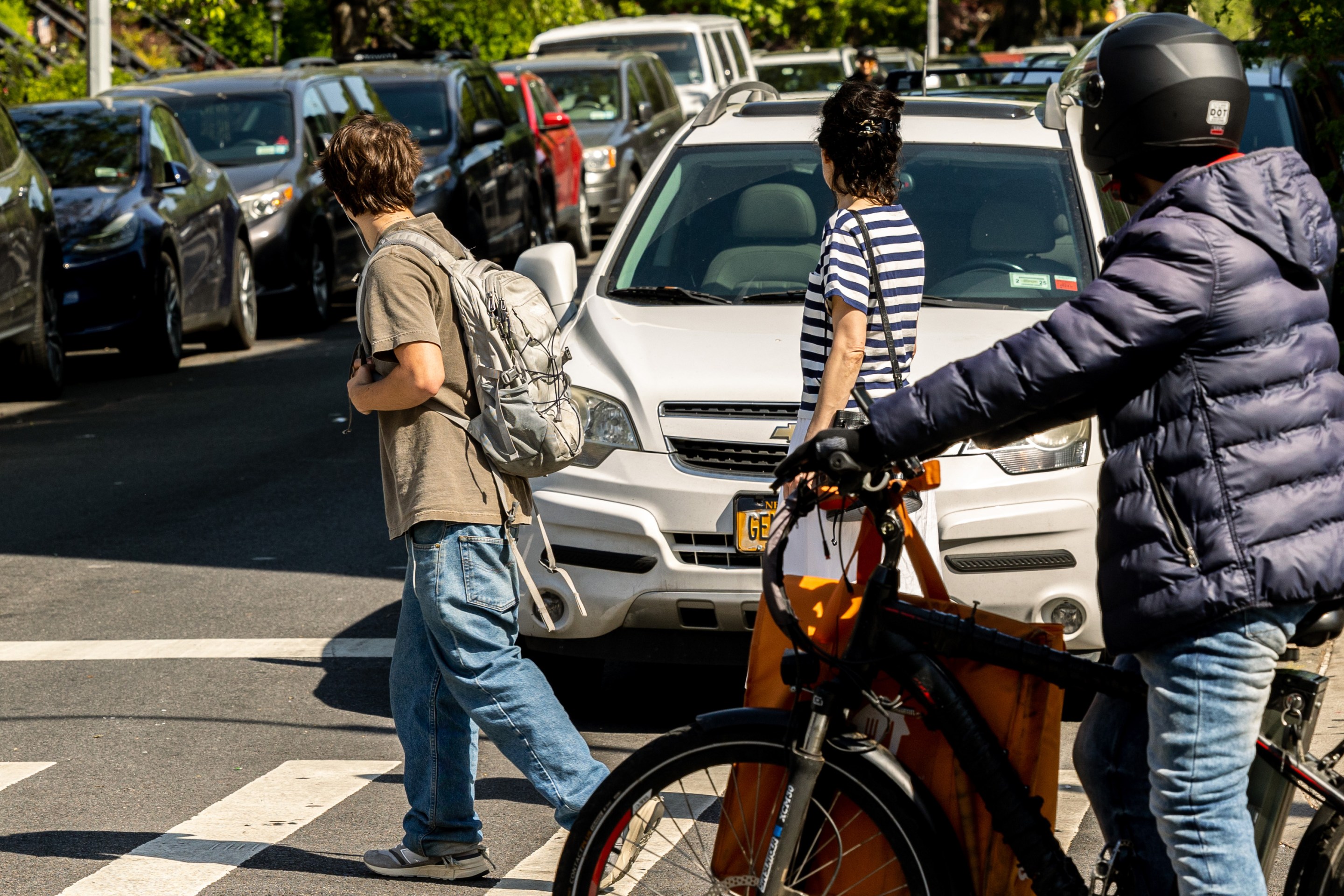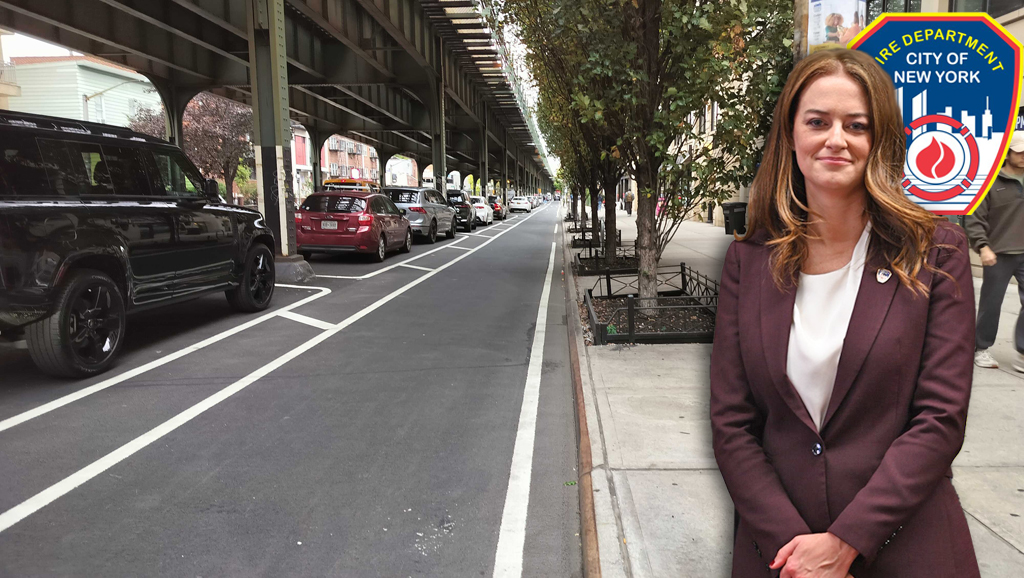There's gonna be a showdown.
Even after the MTA delayed a planned 4-percent fare hike that the board was set to vote on this week, progressive activists are vowing to keep up the fight to find alternate sources of revenue for the state's mass transit system and head off a potential vote on the fare hike later this year.
"We want to make clear that postponing a fare hike is not canceling a fare hike," said Riders Alliance Organizing Manager Stephanie Burgos-Veras at a rally in front of MTA headquarters on Tuesday morning. "In two to three months, people's financial situations will not magically get better. People are facing food insecurity, housing insecurity, they have seen their families pass away and have had to take on the costs of having to bury loved ones because of a scary and deadly virus."
Burgos-Veras was part of a collection of activists that rallied in favor of the Invest in Our New York Act, a package of six bills in front of the state Legislature that proponents say would raise $50 billion, some of which could go towards mass transit funding.
The rally was a clear sign that progressive legislators and organizations were going to push Albany for funding solutions to the MTA that don't rely on fare hikes or Democrats hitting a straight flush and getting lucky enough to control every lever of government. Proponents of the bills also said that the various tax hikes were a way to give back to essential workers, who have been the most reliable users of mass transit even in the days when subway ridership dropped by up to 74 percent.
"It's very nice to go into a supermarket and find the can of soda that we want and it's very nice to have all of our packages delivered to our home, and there's someone behind that: an essential worker who's working day and night. And they need reliable service to get to their destination," said Burgos-Veras.
Outside of New York State's own financial issues, the MTA is still facing an $8-billion shortfall from 2022 to 2024, some of which may be filled as part of the incoming Biden administration's infrastructure bill that is supposed to include $20 billion for mass transit agencies. (And, of course, congestion pricing is supposed to start ... at some point.)
Progressive activists though, are still pushing the state to find ways to try to avoid the next crisis, after the MTA spent the better part of a year teasing doomsday cuts that it said would have been necessary without federal intervention. Activists also say that a Democratic supermajority in the Albany legislature, and the way the coronavirus pandemic revealed stark inequality statewide, make this as advantageous time as ever to push for higher taxes on the wealthy.
"People are finally realizing that the wealthy few are profiting while the rest of us are struggling," said Invest In Our New York Act Campaign Manager Rebecca Bailin. "So the only way to rectify that is with the Invest in New York Act. We have hundreds of organizations signed on, a new legislature that hopefully is going to come through as more progressive, so it is a different moment. This was all happening before COVID, and the crisis just sped it along."
The Invest In Our New York Act includes bills to restore the stock transfer tax, which is a small tax on every stock trade on the New York Stock Exchange; and a wealth tax, which would tax the increased value in investments, such as stock portfolios, owned by billionaires. Standing on the other side of that issue, though, is Gov. Cuomo, whose budget director, Robert Mujica, dismissed the Invest in Our New York package as a non-starter, especially if the federal government fills the state's $15-billion fiscal hole. (That said, the governor may be easing towards a slight tax increase on high wage earners, with a slightly larger tax increase on income that exceeds $100 million, the Wall Street Journal reported. But that tax, too, is only on the table if the federal aid doesn't come.)
"There's been a lot of talk out there for other taxes, some of which are not even constitutional," said Mujica, referencing the wealth tax. "If we have the federal money, there isn't a need necessarily to increase those taxes; we'll be able to fund school aid, we'll be able to fund Medicaid, fund critical services. ... And all of those people who left New York, we want to give them a reason to come back and stay so we don't want to do anything that's going to impact them."
So as Archie Bell and the Drells once sang, there's gonna be a showdown.
"Leadership [in the legislature] is much more amenable to taxing the rich than the governor right now, so that's a good place to start," State Senator Jabari Brisport said at the Tuesday morning rally. "I hope the governor comes to his senses and realizes that there's over 100 billionaires who have tens of billions of dollars added in profit over the past year."
The aforementioned leadership wasted no time in proving Brisport right.
Assembly Speaker Carl Heastie released a statement in which he said the state "must ask the wealthy to do more."
INBOX: Assembly Speaker Carl Heastie on the governor's proposed state budget
— Zach Williams (@ZachReports) January 19, 2021
"While we desperately need help from the incoming Biden Administration and our federal partners, we must also ask the wealthy to do more." pic.twitter.com/70XrJlOz8m
"The wealthy have gotten wealthier during this crisis even as the middle class has shrunk and millions of New Yorkers have struggled to make ends meet," added Senate Majority Leader Andrea Stewart-Cousins. "We must be ready to act as a state to advance efforts to raise revenues, including having the hyper-wealthy share this burden."
And Stewart-Cousins's deputy, State Sen Mike Gianaris took the fight directly to Mujica, quote tweeting, "We'll see about that" above a slide of Mujica's presentation during the governor's budget address arguing against increasing taxes.
"Fortunately," he added, "we have a legislature that feels otherwise. #TaxTheRich."
We’ll see about that...
— Sen. Mike Gianaris (@SenGianaris) January 19, 2021
Fortunately, we have a legislature that feels otherwise #TaxTheRich https://t.co/8kPzOMmUMr
